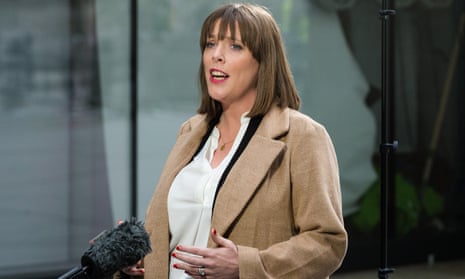Domestic abuse campaigners and victims have accused the government of not valuing the lives of migrant women in forthcoming legislation on the issue.
They are urging the government to make “life-saving” changes to the domestic abuse bill, which will be debated for its final stage in parliament on Monday.
The Step Up Migrant Women coalition – a collection of more than 50 BAME specialist frontline services, migrant and human rights organisations including the Latin American Women’s Rights Service, Southall Black Sisters and Amnesty International UK – has accused the government of leaving a “gaping hole” in the groundbreaking legislation, arguing that it will not provide any support for abused migrant women who have no recourse to public funds.
“The decision to leave migrant women out of this bill sends the message that their lives are not valued, they are disposable, they are second-class people, they are invisible,” said Pragna Patel, the director of Southall Black Sisters.
Currently, domestic violence victims on spousal visas can access support for three months, but women on any other visa with a “no recourse to public funds” stipulation cannot.
“With this bill, the government isn’t just invisibilising abused migrant women, it’s worse than that,” said Patel. “It knows they exist but it is deliberately choosing to ignore their needs.”
She said the issue had been brought up repeatedly with Victoria Atkins, the minister for safeguarding, who said more assessment of the situation was needed.
The shadow minister for domestic violence and safeguarding, Jess Phillips, has tabled an amendment proposing a pause on the no recourse provision for migrant victims who meet a legal aid test.
“The argument the government uses is that these women should go home – and have their whole lives taken away by their abuser,” said Phillips. “In these situations the state is continuing the threat of the perpetrator who says ‘no one will believe you, you won’t have anywhere to go and have no support’ – and right now the abuser is absolutely right.”
Phillips argued that the bill also did not provide economic stability for community-based support services, although she welcomed a statutory duty on local authorities to provide support for victims in refuges.
“Specialist services for black women or disabled victims and male victims are no better served than they were,” said Phillips. “They will have new tools, but the funding decline in the specialised sector during years of austerity won’t be abated by the bill.”
The bill also includes a statutory definition of domestic abuse and would establish a domestic abuse commissioner and create a new domestic abuse protection notice and domestic abuse protection order.
Women’s Aid is calling for an end to the presumption of contact in domestic abuse cases. “We know through our work that safeguarding concerns are often not believed or understood in the child contact system,” said Sophie Francis-Cansfield, a senior campaigns and policy officer at the charity. “We need fundamental reform.”
Changes have already been made to the bill, including the addition of a clause to remove “consent for sexual gratification” as a defence in court proceedings for causing serious harm, following an 18-month campaign by We Can’t Consent To This.
After a campaign led by the NSPCC, the bill will now explicitly recognise that children are victims of domestic abuse in their own right, and the bill has also been amended to guarantee survivors access to special measures such as screens and waiting rooms in all courts, and to expand a ban on abusers cross-examining their victims.
Campaigners including Labour’s Stella Creasy are continuing to push for an amendment that would lead to misogyny being treated by police as a hate crime.
Agenda, the alliance for women and girls at risk, is calling for training for frontline professionals to be made mandatory. This would cost £3.6m and would provide long-term savings, argued Agenda’s chief executive, Jemima Olchawski.
“Simply asking the question in the right way is the first but crucial step. If followed up by appropriate support, it has the potential not only to change lives but to save them,” she said.
A spokesperson for the Home Office called the bill “a game-changing piece of legislation that will transform how we deal with this horrific crime”, adding that the government had announced £76m to support victims of domestic abuse, sexual violence and modern slavery.
Women’s Aid estimates that £173m is required to create a comprehensive network of refuges.
